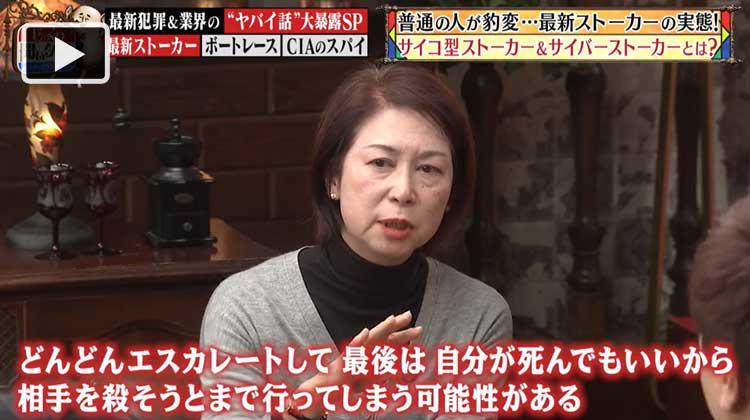Do you know what a “cyber stalker” is? Cyberstalking is stalking or stalking a specific person through the Internet.
The UN's Broadband Commission for Digital Development released a report titled "Cyber Violence Against Women And Girls" on September 24, US time. It found that 73% of female internet users have been exposed to some form of cyber-violence in the past, with women aged 18 to 24 being particularly vulnerable to stalking, sexual harassment and physical harm.
SNS has made it easy for anyone to get any information about a subject. As a result, the number of cyber stalkers is increasing, and there are even cases where they become stalkers themselves. I will explain the actual situation and problems of cyber stalkers, and what you need to do to prevent them.
Examples of violations of the stalking regulation law on SNS
Cyber stalking is prohibited by Article 2, Paragraph 1, Item 5 of the Anti-Stalking Act. However, according to the law, "silent phone calls, continuous phone calls/facsimiles, and e-mails" are considered to be incidental acts (Metropolitan Police Department explanation page), and anything other than e-mail is not defined as cyber stalking. However, in reality, stalking acts on SNS are increasing, and there are cases where SNS was also violated the stalker control law.

For example, in September 2015, a 51-year-old man from Shiga Prefecture sent dozens of messages on LINE to a 14-year-old girl in her third year of junior high school, saying, "Your little sister is cute." The man was also arrested for violating the stalking control law for sending messages about the student's bathing time and body. This is probably because the stalker control law considers it to be an act of "telling that you are monitoring" and "infringement of sexual shame".
There are also examples of women being stalked. In April 2015, a 23-year-old female graduate student from Hiroshima Prefecture was arrested for defamation and stalking laws after posting on an Internet bulletin board an article that slandered her ex-girlfriend. A female graduate student posted the name of her ex-girlfriend and wrote "womanizer" 16 times despite being warned by the police.
By using the Internet and SNS, it is possible to easily send messages to other parties or threaten them by posting them. While the perpetrator can easily do it, the damage the victim receives is great.
Junior high and high school girls who publish anything on SNS
The increase in cyber stalkers may be due to the spread of SNS, which has made it easier to obtain personal information. For example, Facebook has a function that shows people who may be friends, and I often hear that "ex-girlfriend came out" or "divorced ex-husband came out" in that column. Even after parting, there are many cases where people can see things from such places and get information.
The same goes for Twitter. Many high school students specify their real name, high school name, age, etc. in the profile column, and use a face photo as an icon. On top of that, you can post your current location, photos, etc. in real time without even locking your account. Just by knowing your Twitter account, your actions will be overlooked by anyone.
Here is another example. Have you ever seen sentences such as "#Introducing people who RTed" lined up in trends on Twitter? Among junior and senior high school students, it is popular to introduce people who RT, such as "Introducing people who #RT" and "Talking about impressions of people who #RT".
There is no problem if it is a vague impression, but there are cases where the user name and name (age) are also introduced. These tweets were posted unlocked for anyone to see. In other words, even if you use it anonymously, there is a possibility that your real name, age, etc. will be known to those around you.
「#RTした人を紹介する」例。ツイートから名前や学年などが分かる例も多いIn a recent incident, the person who went up in flames posted a resume, a photo of his driver's license, a photo of the building where he lives, the name of the building, his real name, his affiliation, etc. without concealing it. Therefore, those personal information has ended up being posted on the summary page along with the flaming incident.
All of these examples are caused by a lack of understanding that Twitter and Facebook can be seen by anyone unless the scope of disclosure is limited, and can also be searched. It can be said that the increase in cyber stalkers is because junior and senior high school girls continue to generously disclose personal information and do not care about the scope of disclosure.




